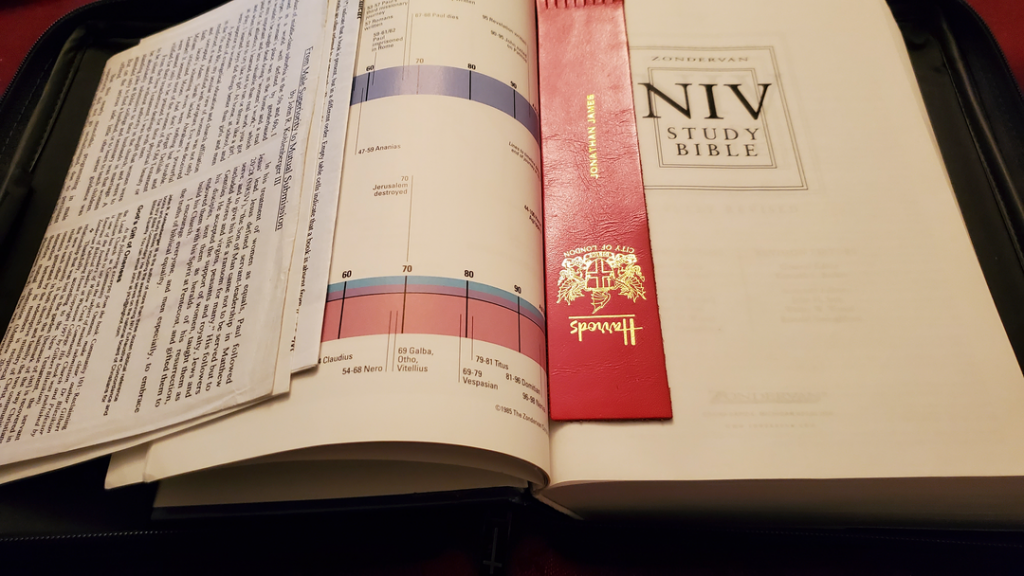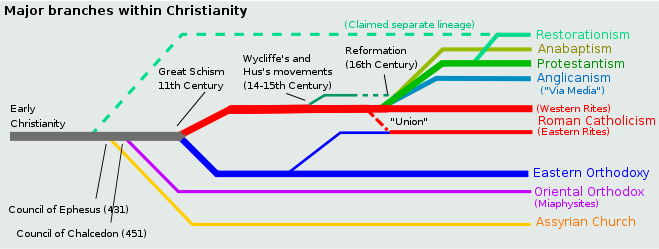This is an examination of the popular Christian biblical canon of scriptures, and the manuscripts thereof. It acts uniquely as a short memoir and a spreadsheet of biblical books (I couldn’t find a list like this, so I made my own). This is not an interpretation of what the Bible means. The main reason I’m putting this together is help people come up with their own answer to, “What is the Bible?” As I was answering this big question for myself, it got very personal. If you want to skip that part, continue to Part 2, the more objective portion of this biblical study. The conclusion is in Part 3.

This is both a scholarly and personal examination. I grew up with a nurturing “nuclear family” in the suburbs of Philadelphia, Pennsylvania. I was first baptized in the Roman Catholic Church as a baby. My father is of Catholic Italian ancestry, but I attended a Christian Baptist church that taught a literal interpretation of the Bible (i.e. fundamentalist). While my parents and brother never clung to religion very tightly, I found comfort in it at a young age. My grandfather and I went to Sunday School and service nearly every week. I “accepted Jesus Christ as my savior” at the age of 15 and was baptized (again, but this time under my own volition). For me, as a Baptist, this was a ceremonial way of telling the world that I was dedicated to the gospel (Greek/Old English for “good news”) of Christ.
By high school graduation, after a public school education, I was in the National Honor Society, an Eagle Scout, and I received a triple-varsity letter in tennis, wrestling, and track. I was taught the value of environmentalism and was fascinated with the universe and space travel. I grew up on a steady diet of American action/sci-fi movies and classic rock music. While I’ve always considered myself to be a likable person, I’m also an introvert. I didn’t date anyone in high school. On reflection, my dedication to biblical teachings prevented me from being a typical rebellious teenager.
In 1998, I was a freshman at Vanderbilt University in the “Bible Belt” of America. While Nashville, Tennessee, is a conservative town, the university is not. I majored in Religious Studies and Computer Science, the latter because I’ve always had an interest in information technology. In attending a “liberal arts” college, I was exposed to an overwhelming amount of scholarly material. I was also highly involved in the Baptist Student Union at Vanderbilt and attended several “mission trips” to share the gospel message.
I remained close with my family while in college, despite being more than an 11-hour drive from home. The Christian community in Nashville was like my second family, but my studies at Vanderbilt were taking me in a different direction. I learned not only about other religions, but the many denominations of Christianity. Like the majority of Americans, I really only knew about the customs and religion of my own upbringing. Looking at the “branches within Christianity” graphic below, I considered myself a part of Protestantism. I knew a little bit about Catholicism and had heard of Eastern Orthodoxy, but I had very little knowledge of how or why they branched off from Judaism and early Christianity.

While I was in college, the Internet, the WWW, and Napster were blowing up! My thirst for knowledge was growing, but I didn’t know how to satiate it. While I was still a devout Christian, the Web and a college education were giving me access to much more than I was exposed to until that point in my life. It was overwhelming and I did not know where to focus. I entered the first depressive period of my life. I was following the expected college/love/marriage/house path, but it was not satisfying. By 2006 I had abandoned nearly all of that path. My personality has remained the same, but world events and what I would consider a “lifelong education” have changed my mind about Christianity.
When it comes to faith, I think some people are able to trust in it, while others want to question it. I have never really felt the Spirit of God, but I suppose it was the ritual & dogma that I found so appealing as a young Christian. Ironically, ritual & dogma continue to fascinate me, but for different reasons. I have not spent much time with biblical studies in the past 13 years, but listening to The History in the Bible Podcast has reinvigorated my interest.* I am reminded of the continuing evolution of biblical studies, as scholars piece together (sometimes literally, such as with the Dead Sea Scrolls) the stories of Adam, Eve, Ruth, Samson, Judith, Jesus, Mary, and hundreds of others. It’s a complex puzzle that will never be fully solved, but I hope these words will put some of the pieces together for those with understanding in their heart (Matthew 13:15).
Continue to Part 2: The Old Testament…
* Garry Stevens has put together a monumental study of “all the history in all the books in all the Bibles,” in chronological order, over dozens of episodes in his podcast. His charts and supplemental information are impressive, and all are available under a Creative Commons license. Here’s episode one, for your convenience: